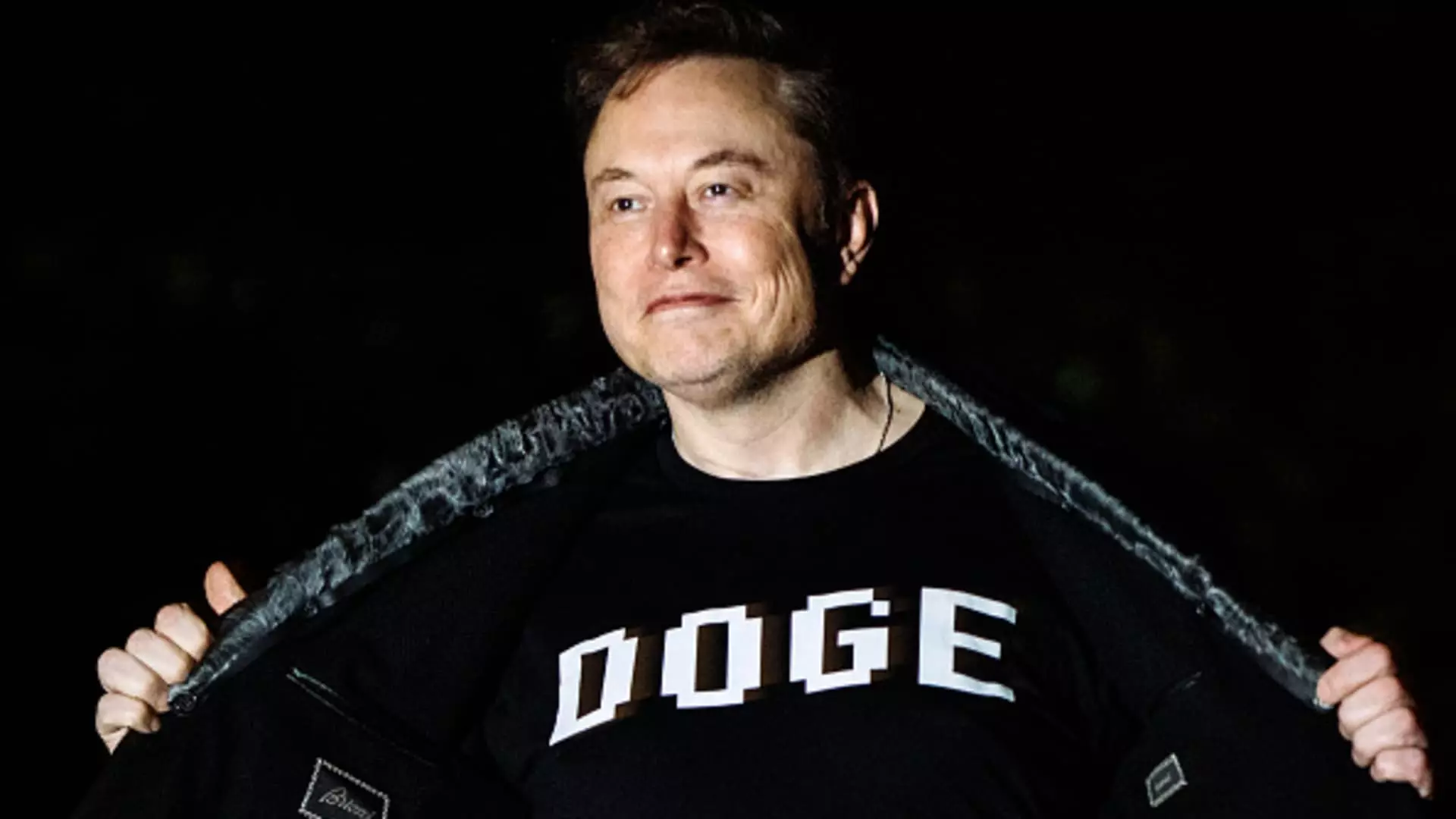In a dramatic rollercoaster of stock market activity, Tesla shares experienced a notable uptick on Wednesday, following speculation about Elon Musk potentially stepping back from his role in the Department of Government Efficiency. This report ignited a surge of optimism among investors, suggesting that Musk’s renewed focus could reinvigorate Tesla amidst its recent struggles. However, the euphoria was somewhat tempered after the White House swiftly dismissed the report as “garbage,” showcasing the volatility and unpredictability in both Musk’s ventures and the broader market.
Despite the encouraging spike—where shares climbed approximately 5%—investors are left grappling with the reality of Tesla’s downward trajectory over the past months. The stock had plummeted by over 31% year-to-date and witnessed a staggering 36% drop in the first quarter, marking one of its most challenging periods since 2022. This trend illustrates a broader apprehension amongst stakeholders regarding the company’s ability to maintain market leadership against emerging competitors in the electric vehicle (EV) sector.
The Ripple Effect of Musk’s Public Engagements
Musk’s multifaceted engagements, particularly his involvement in political activities, have undoubtedly weighed heavily on Tesla’s public image and stock performance. His recent remarks at a Wisconsin rally highlighted the intricate dynamics at play; Musk revealed that Tesla’s stock value has halved during his tenure in governmental roles. This connection between his political undertakings and Tesla’s fluctuating stock prices raises significant questions about the impact of personal brand on corporate health.
The controversial atmosphere surrounding Musk is further exacerbated by protests, boycotts, and even violent actions directed toward Tesla’s physical locations globally. The discontent is fueled not just by Musk’s governmental association but also by external factors such as President Trump’s automotive tariffs affecting Tesla’s supply chains in critical markets like Mexico and China. These issues coalesce into a troubling narrative that could hinder the company’s innovation drive and market expansion.
Political Tensions and Their Business Implications
As Musk navigates the intricacies of international politics and business, the backlash from his public persona continues to reverberate within Tesla’s operational strategies. Critics argue that Musk’s prioritization of political endeavors has not only distracted him from his core business responsibilities but has also invited scrutiny that weighs down the brand’s reputation. With the political landscape becoming increasingly polarized, Musk’s commitment to Republican causes has alienated segments of the consumer base that favor more progressive values.
In a related matter, the New York City Comptroller’s recent call for litigation against Tesla in relation to Musk’s influential role in the government underscores the precarious balance between power and responsibility. As public sentiment shifts and shareholder dissatisfaction grows, the progressive backlash exhibits potential ramifications not only for Tesla’s image but also for its financial performance in the long haul.
Moving Forward in Uncertain Times
In the face of such adversity, the question becomes: how will Tesla and its CEO adapt? Musk’s ability to pivot back to Tesla’s operations while addressing the noise from his various affiliations could be pivotal in the coming months. As investors look for indications of stability, it’s clear that the outcome will not only reflect upon Musk’s leadership but also shape the future landscape of the electric vehicle market. The juxtaposition of innovation and theatrics creates an intriguing yet complex narrative that is far from resolved.


Leave a Reply